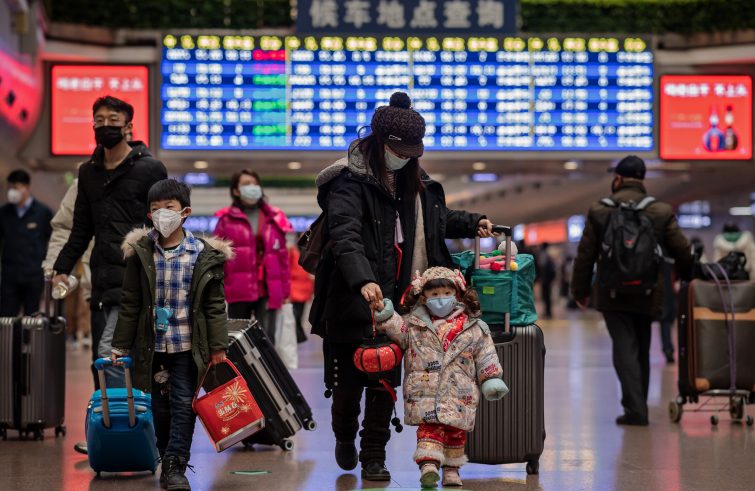
The numbers don’t add up. Moreover, China’s official data on number of deaths and infected people does not explain the drastic prevention and quarantine measures the Country is implementing, not only in Wuhan, but now also in Shanghai and Beijing. Faced with poor communication, “people are scared, we’re on the verge of panic”, declared PIME missionary Father Renzo Milanese from Hong Kong. This morning the South China Morning Post published updated data from China’s National Health Commission, officially circulating also in Italy. The death toll now stands at 106 with 4,535 infected. Hong Kong reported 8 cases of infection, Macao 7 and Taiwan 5. “Given 11 million people living in Wuhan,” the missionary said, “these numbers are ridiculous. People fear that the virus spread much further than publicly reported and that it has claimed many more victims. The drastic prevention measures taken by the Chinese government and the quarantine of an entire city like Wuhan would otherwise be incomprehensible.”
Preventive measures are also being taken in Hong Kong by the city’s local government. After the Chinese New Year holidays, all schools (from kindergartens to universities) will remain closed until 16 February as well as entertainment places. People are required to wear a face mask in subways, trains and buses or when entering public places. An emergency plan for hospitals has been drawn up. Anyone with symptoms will obviously be put in isolation. The government is looking for spaces in which to quarantine whoever had contacts with infected people and is planning to use vacant social housing for this purpose, causing protests from the population. “The problem”, the missionary added, “is that nobody knows exactly what we are dealing with. We haven’t even understood exactly how the virus, which can infect with no symptoms, was originated.”
Macao is in the same state of uncertainty. “The new virus raised alarm throughout China and abroad,” said Kin Sheung Chiaretto Yan, member of the Focolare Movement, from Macao, “because of many unknown factors. The extent of its harmfulness and how easily it is transmitted, whether it can cause pneumonia, which in some cases has been fatal, remains unknown.” “Usually, during the Chinese New Year, most people in China return home, typically to rural areas, to reunite with their families. Yesterday I planned to visit some Catholic communities and bishops in 4 different locations in mainland China taking advantage of this holiday period. But things rapidly evolved and this epidemic spread faster than expected with an overall worsening of the situation. I had to cancel the trips.” Reportedly, three billion people were travelling during the Lunar New Year period last year. ” The government has taken drastic measures to discourage public activities and decrease travel,” said Kin Sheung Yan. “All plane and train tickets are fully refundable.” Most public activities, all tourist sites, entertainment facilities, museums, cinemas, religious services and public cultural activities have been suspended throughout China.” “People are taking the necessary health precautions, trying to obtain face masks and sharing them with people who still haven’t succeeded in buying them. “The government is mobilizing resources to provide concrete assistance,” added the member of the Focolare Movement. “Doctors and nurses are at the front line and need everyone’s support.”
With the worsening of the situation, mutual solidarity between people is also increasing. In order to avoid going out, “people are making greater use of communication channels such as social media, WeChat, Whastapp, messages to send greetings and prayers”. Also the diocese of Macao – as the diocese of Hong Kong did last week – issued guidelines to priests and parishes with cleaning directions for churches, Holy Mass and the distribution of the Eucharist. “Here in Macao we go to Mass every day,” Kin Sheung Yan pointed out. “Some dioceses are planning to send money or material goods, especially health protection equipment, to Wuhan. In some social media groups some people suggest praying to St. Roch, or reciting a novena.” Saint Roch has been the most invoked Saint, since the Middle Ages, to protect against the terrible scourge of the plague, and his popularity is still widespread. His protection gradually extended to the rural world, to animals, to great disasters such as earthquakes, epidemics and very serious diseases. In a more modern sense, he is also an example of human solidarity and Christian charity, under the banner of voluntary activity. Crises of this kind,” concluded Kin Sheung, “encourage us to pray more, to entrust ourselves in some way to God and support each other both spiritually and materially.”













